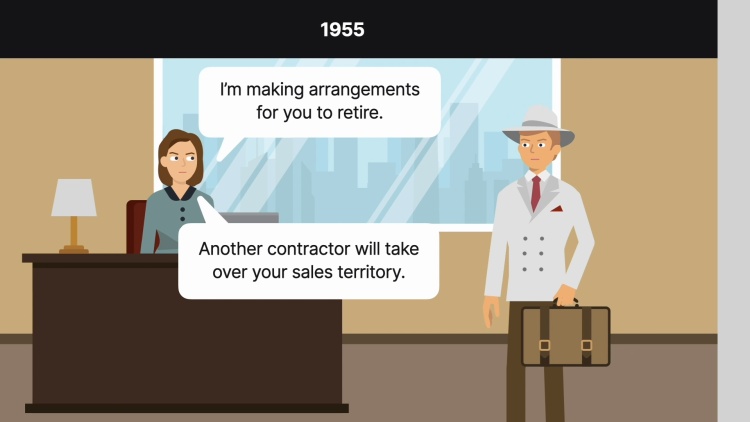Pitts v. McGraw-Edison Co.
United States Court of Appeals for the Sixth Circuit
329 F.2d 412 (1964)
- Written by Jamie Milne, JD
Facts
L. U. Pitts (plaintiff) was an independent contractor for McGraw-Edison Company (McGraw) (defendant) working on a commission basis as a manufacturer’s representative in an assigned territory. Pitts and McGraw did not have a written contract, and their business relationship was terminable by either party at will. Pitts, as an independent contractor, did not make any contributions to a pension or retirement fund through McGraw. When Pitts was 67 years old, McGraw sent a letter informing him that he would be retired on a set date and replaced by another representative. The letter stated that “to make the matter of retirement a little less distasteful,” McGraw would pay Pitts a 1 percent commission on sales in his replacement’s assigned territory. McGraw made these payments for five years but then discontinued them, claiming that the payments were intended to be only for a five-year period. Pitts sued McGraw, claiming that the letter from McGraw constituted an offer that he accepted by retiring and surrendering his customer records to his replacement. McGraw countered that the so-called retirement was not really a retirement but rather McGraw’s termination of the parties’ business relationship, which it was legally entitled to do at will. The payments were merely voluntary gratuities that McGraw could end at any time. The district court dismissed Pitts’s complaint. Pitts appealed, claiming that even if there was no consideration to support a contract, McGraw’s promise of payments was enforceable on a promissory-estoppel theory.
Rule of Law
Issue
Holding and Reasoning (Miller, J.)
What to do next…
Here's why 911,000 law students have relied on our case briefs:
- Written by law professors and practitioners, not other law students. 47,100 briefs, keyed to 997 casebooks. Top-notch customer support.
- The right amount of information, includes the facts, issues, rule of law, holding and reasoning, and any concurrences and dissents.
- Access in your classes, works on your mobile and tablet. Massive library of related video lessons and high quality multiple-choice questions.
- Easy to use, uniform format for every case brief. Written in plain English, not in legalese. Our briefs summarize and simplify; they don’t just repeat the court’s language.





